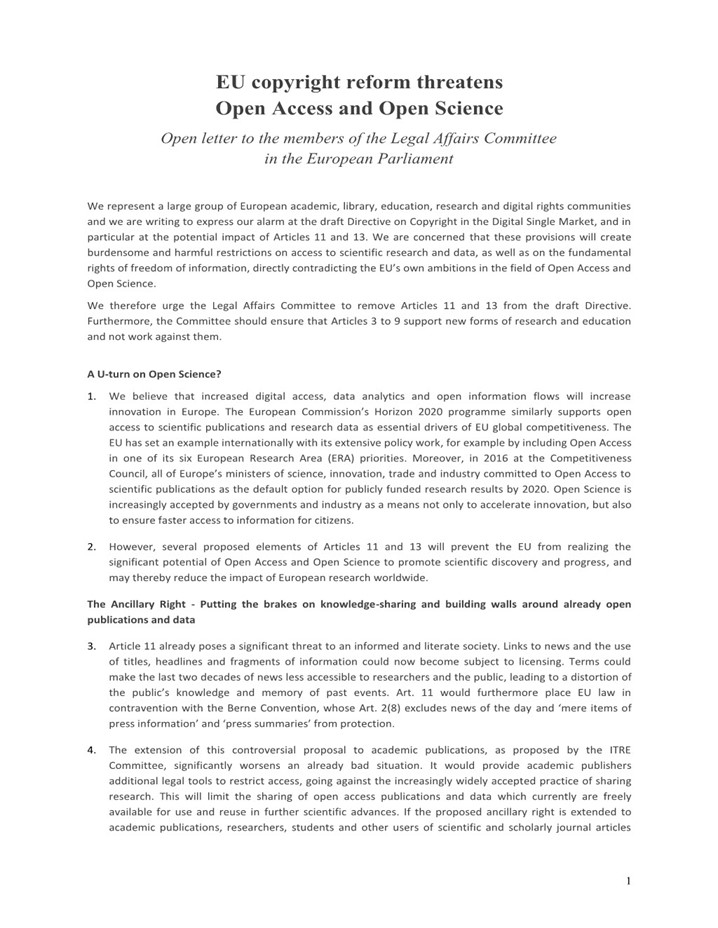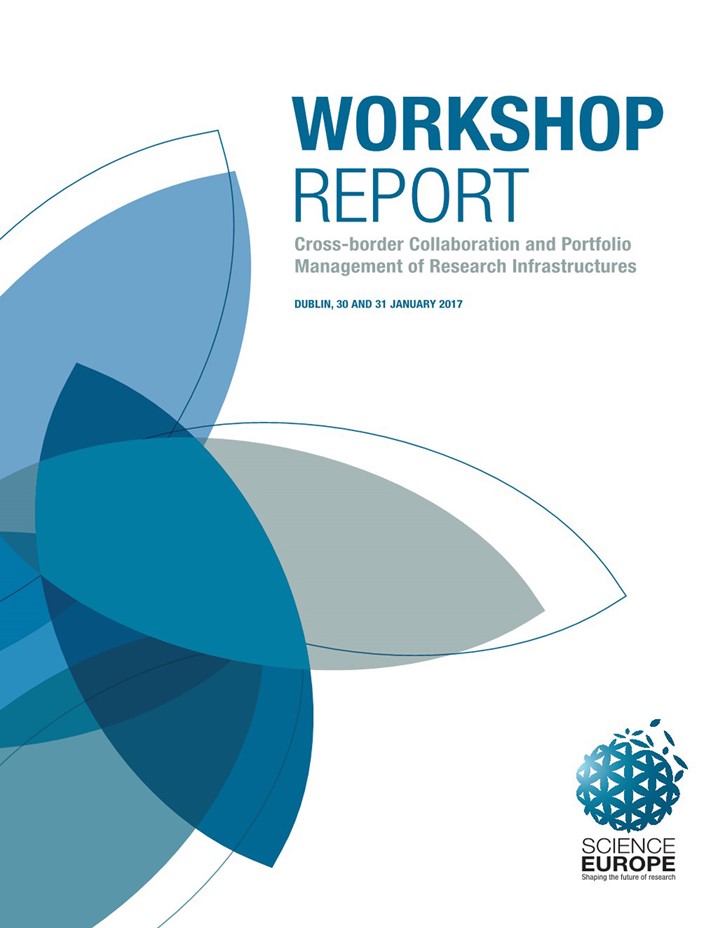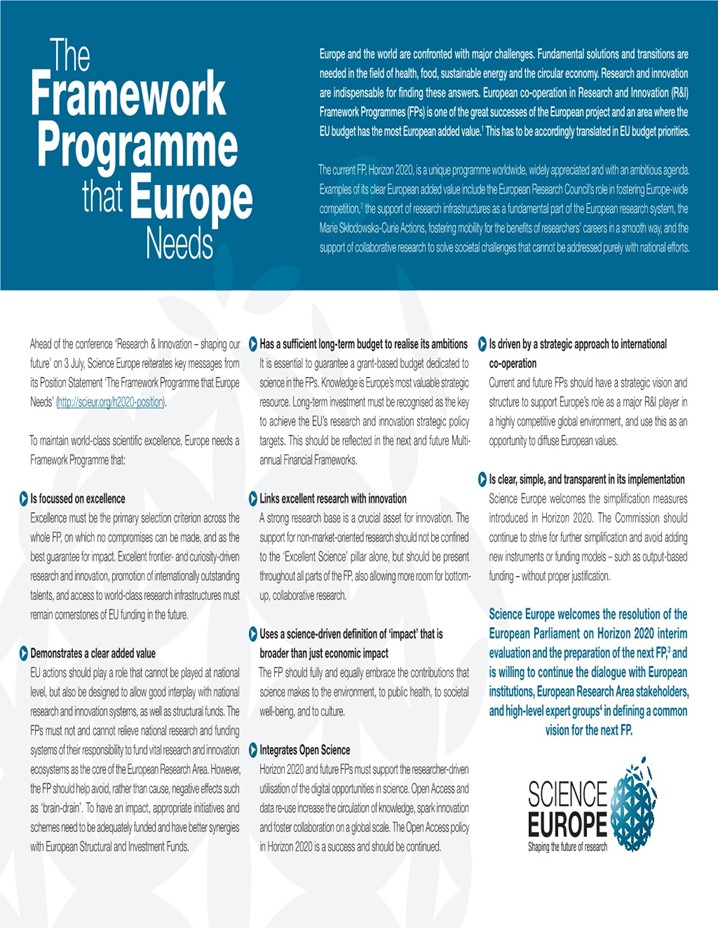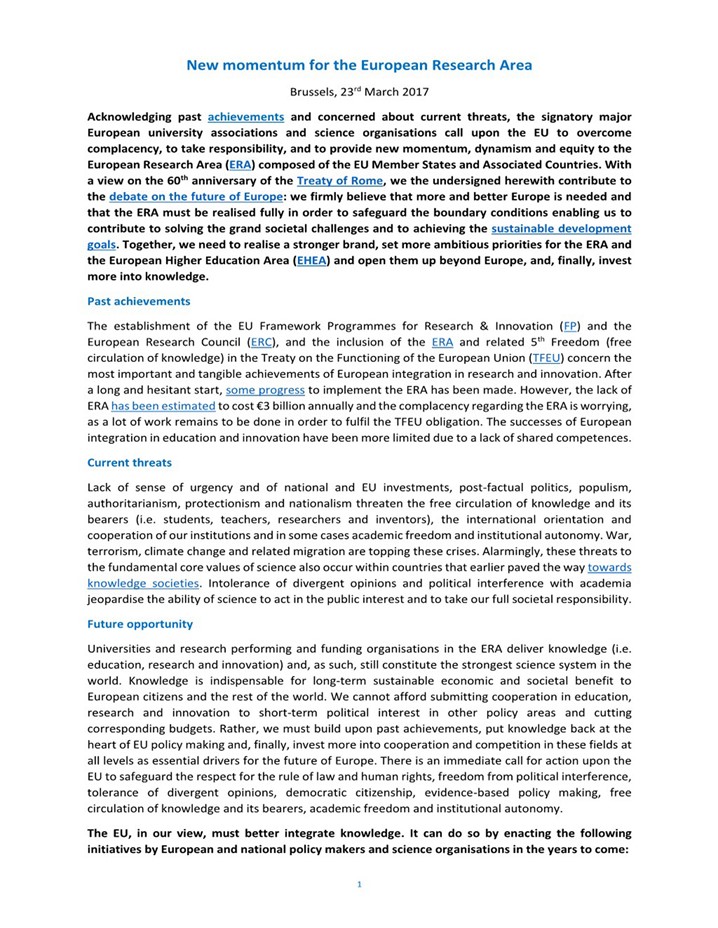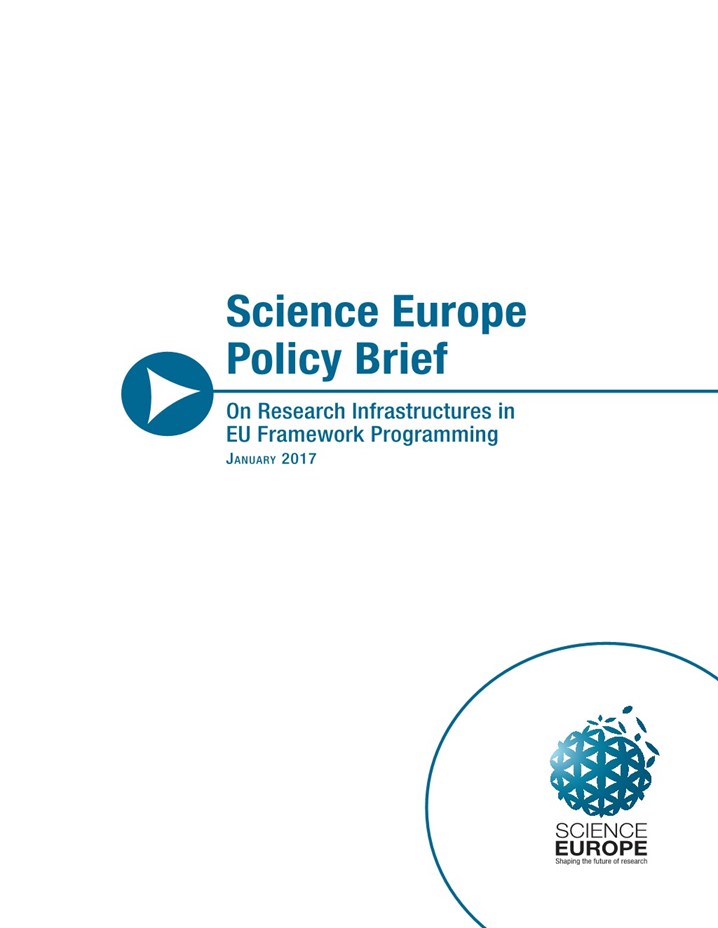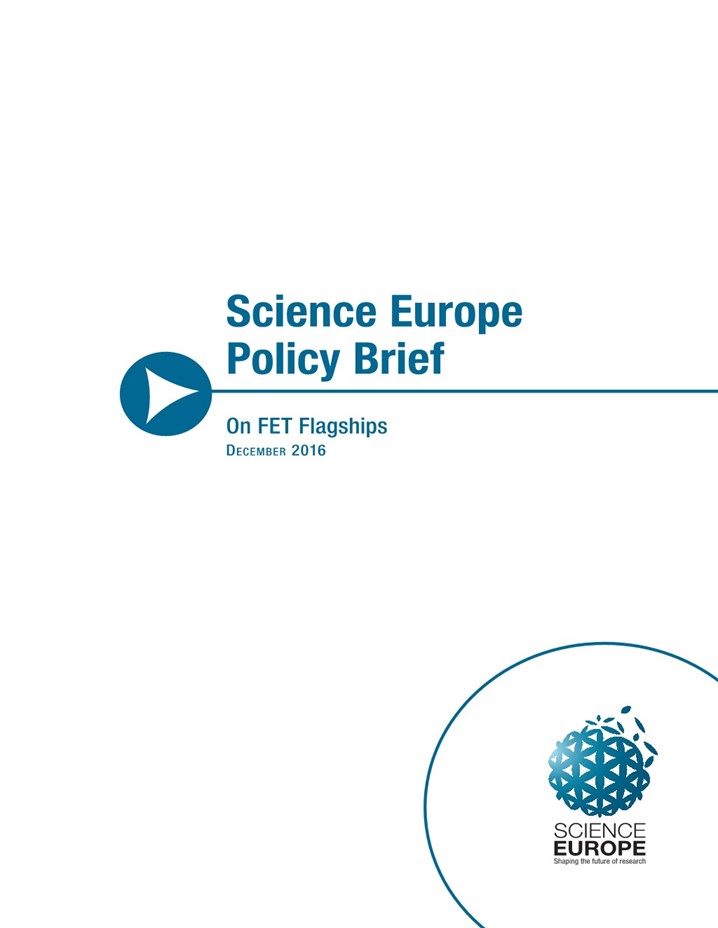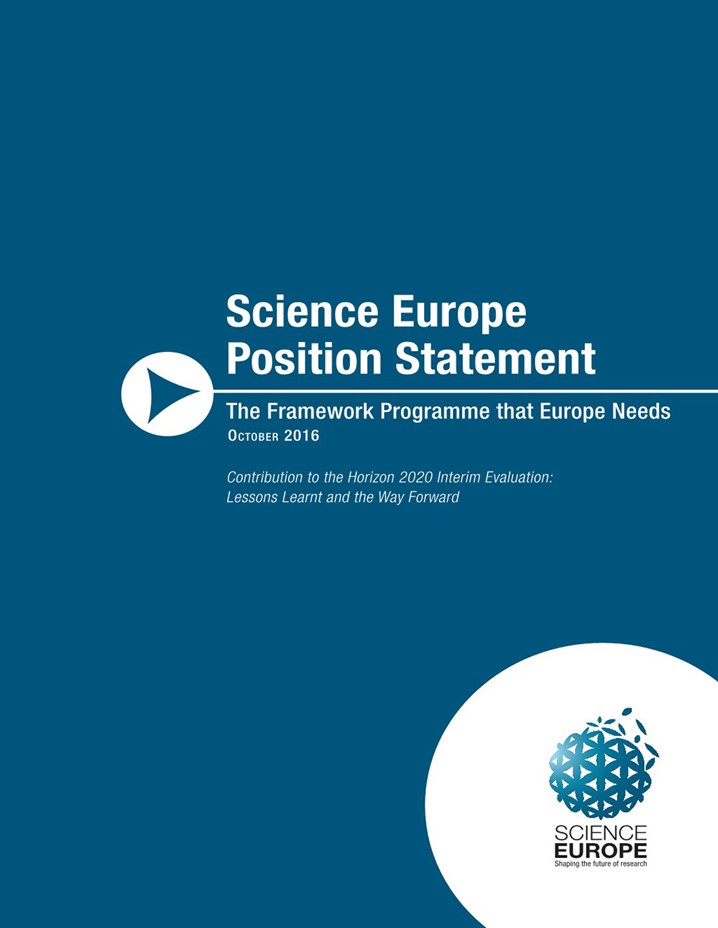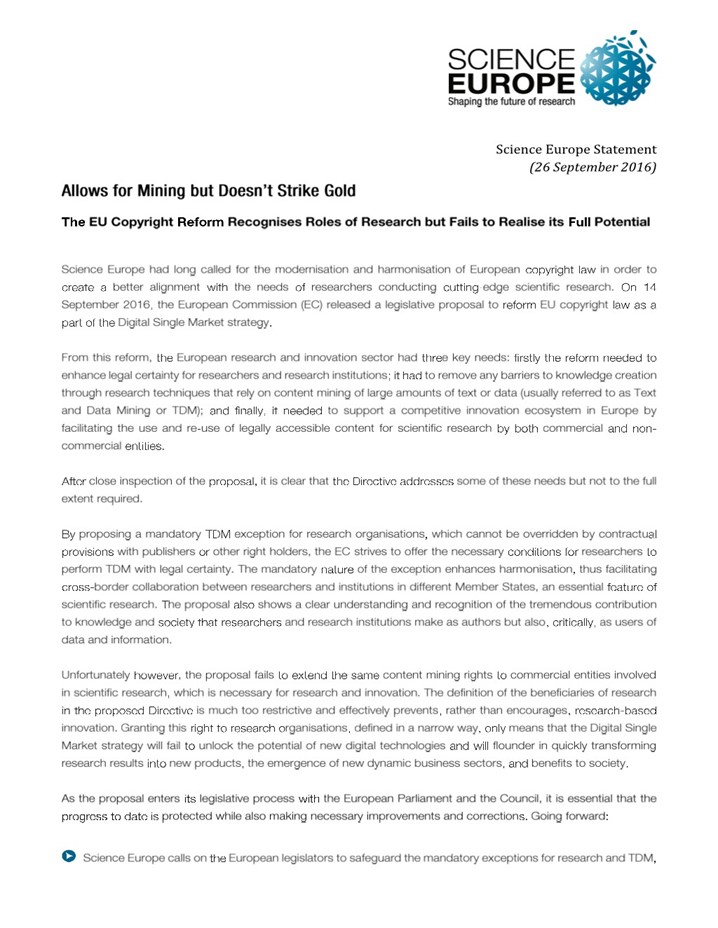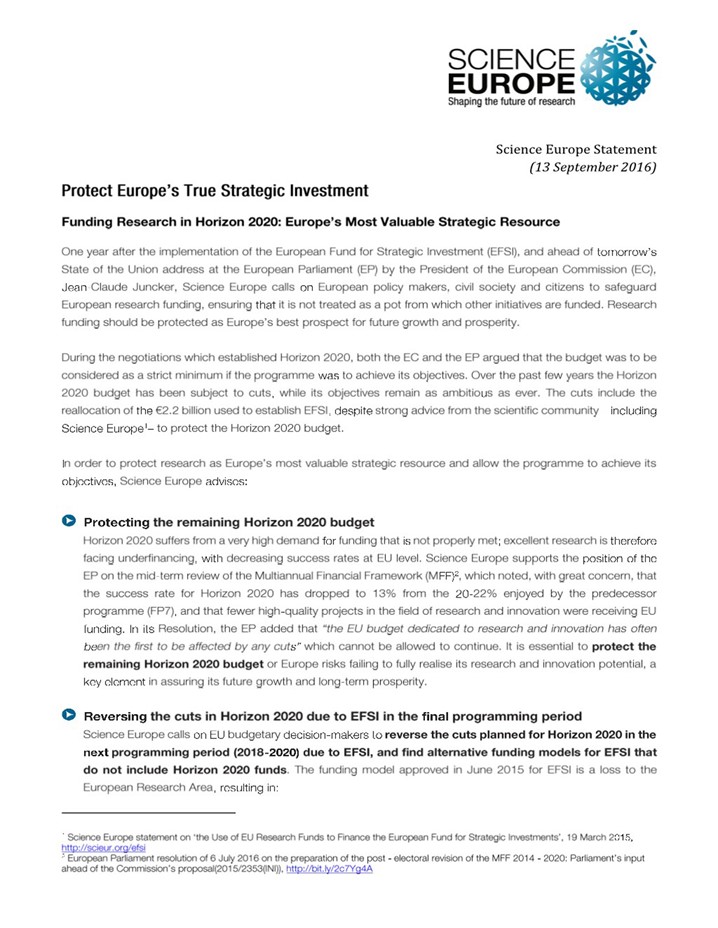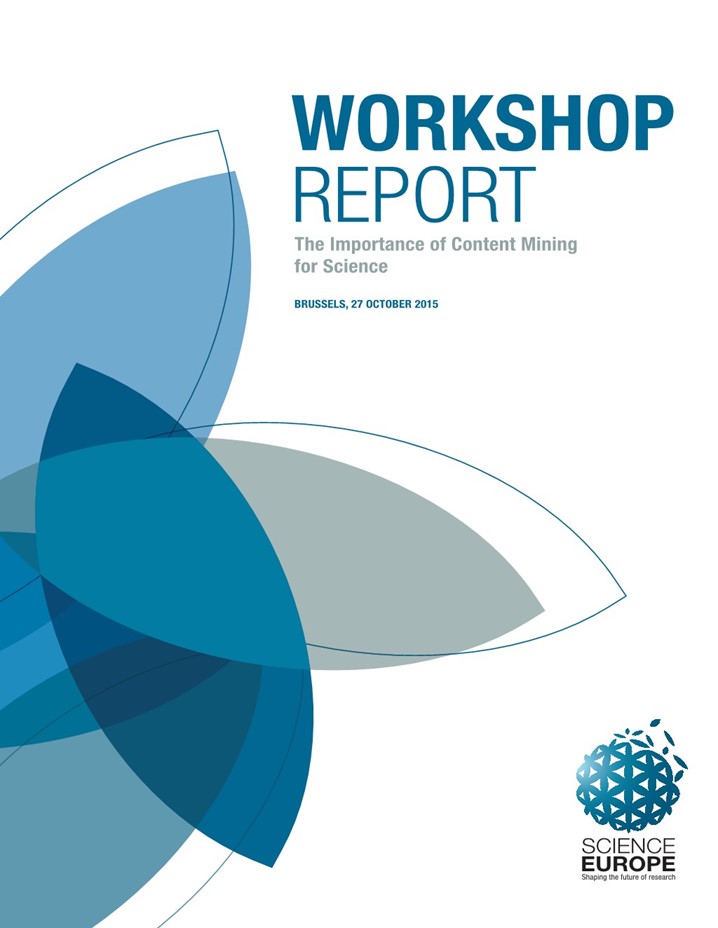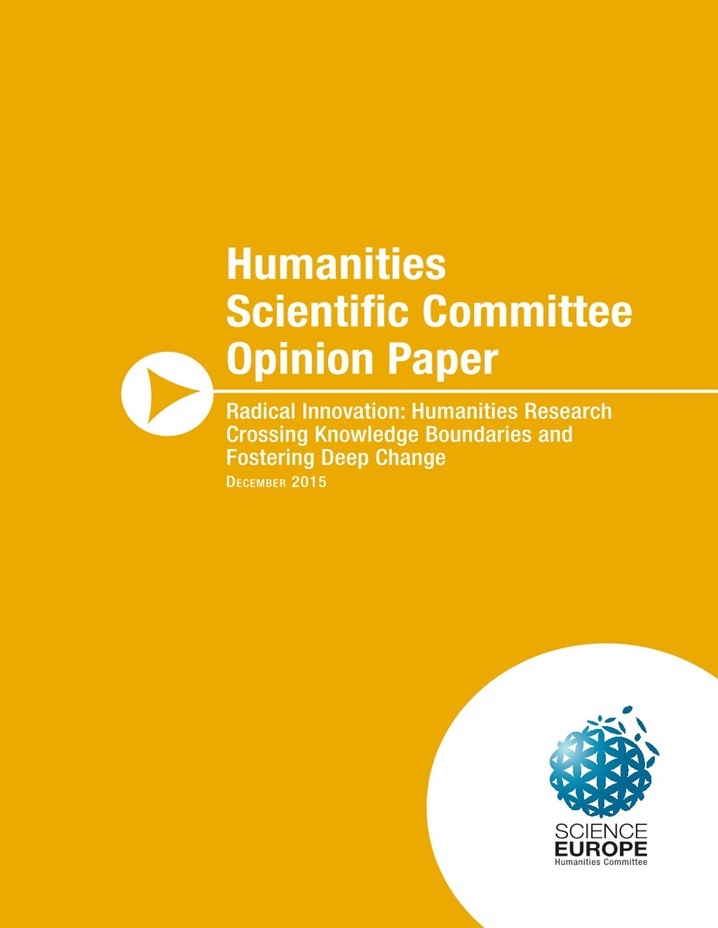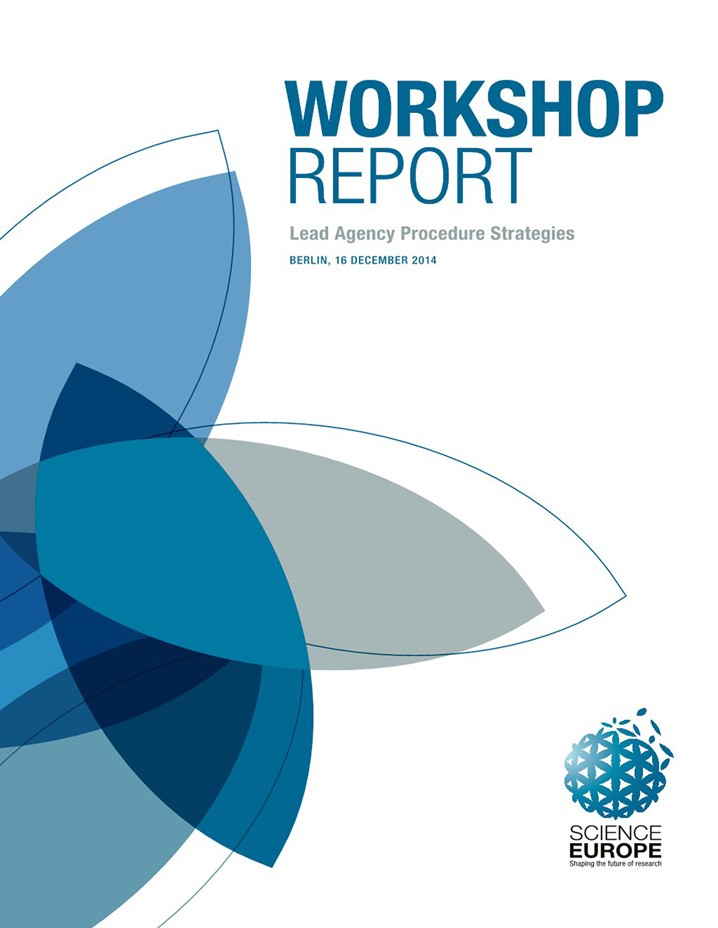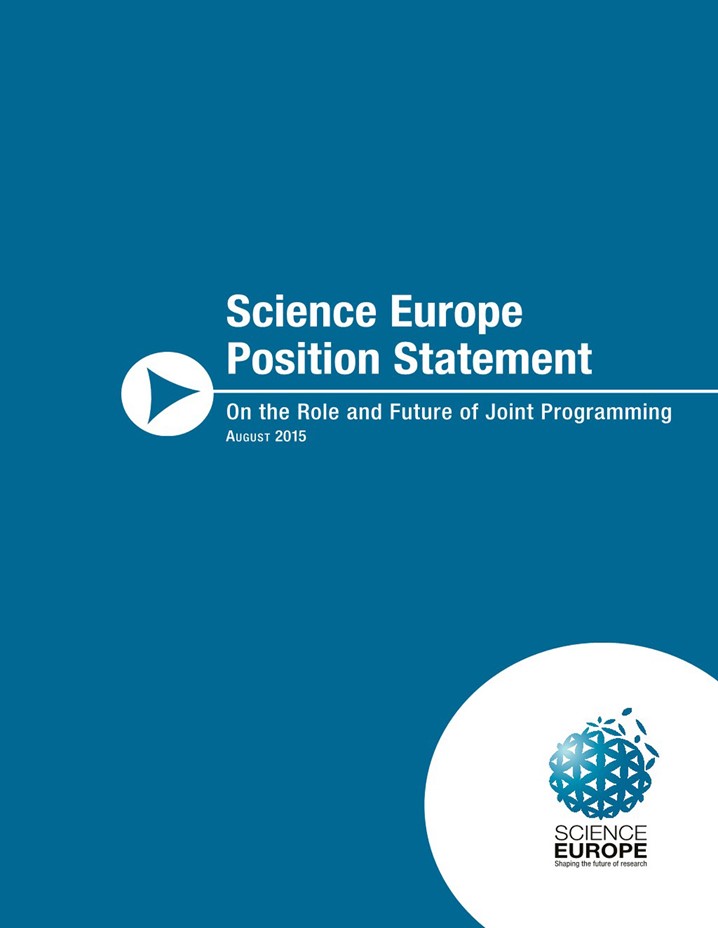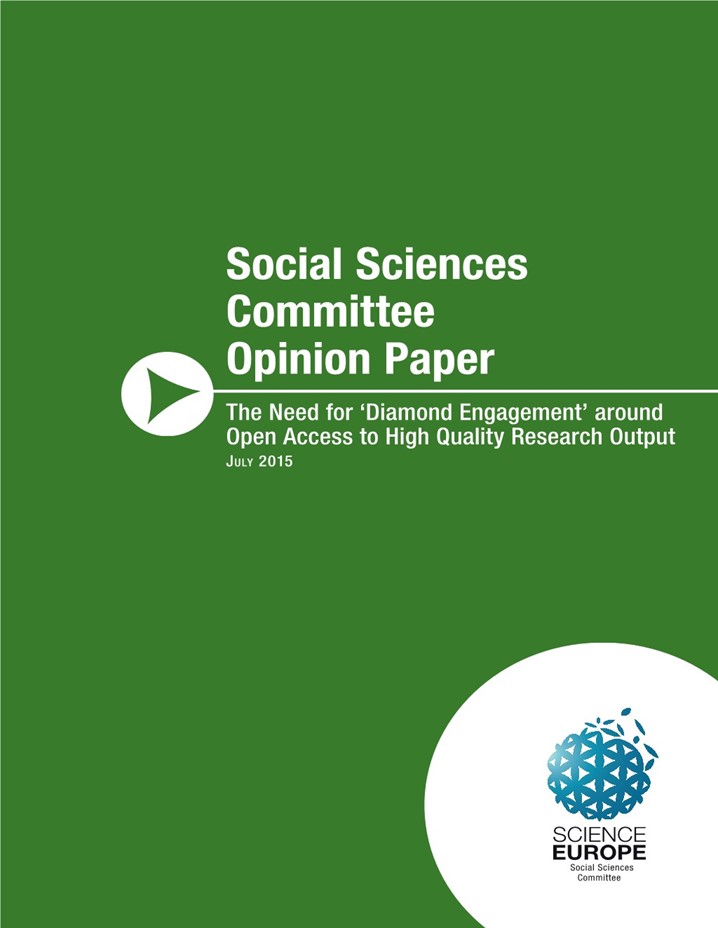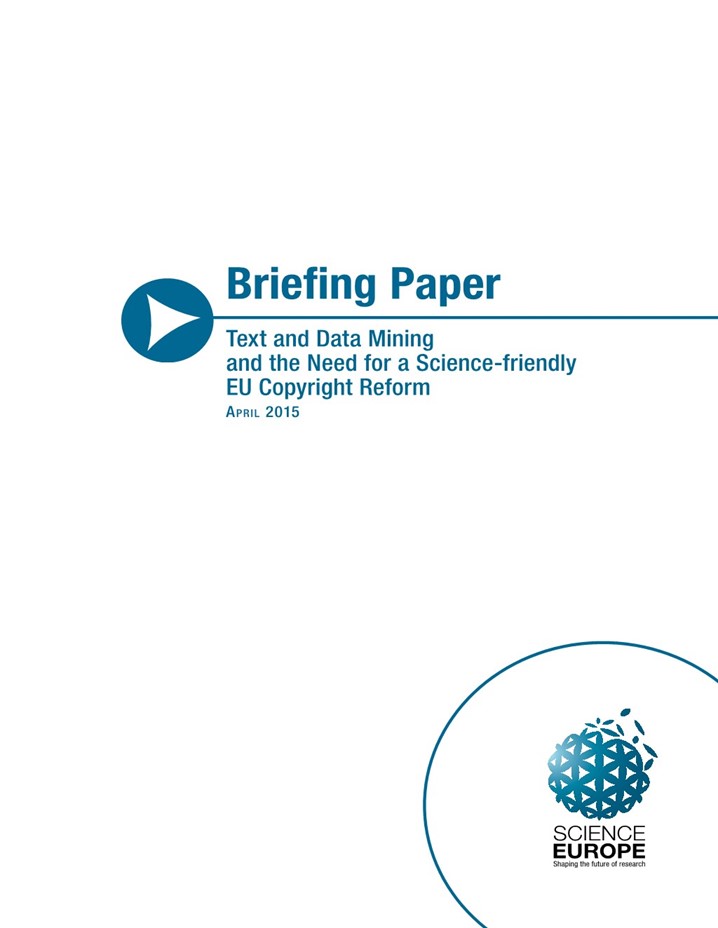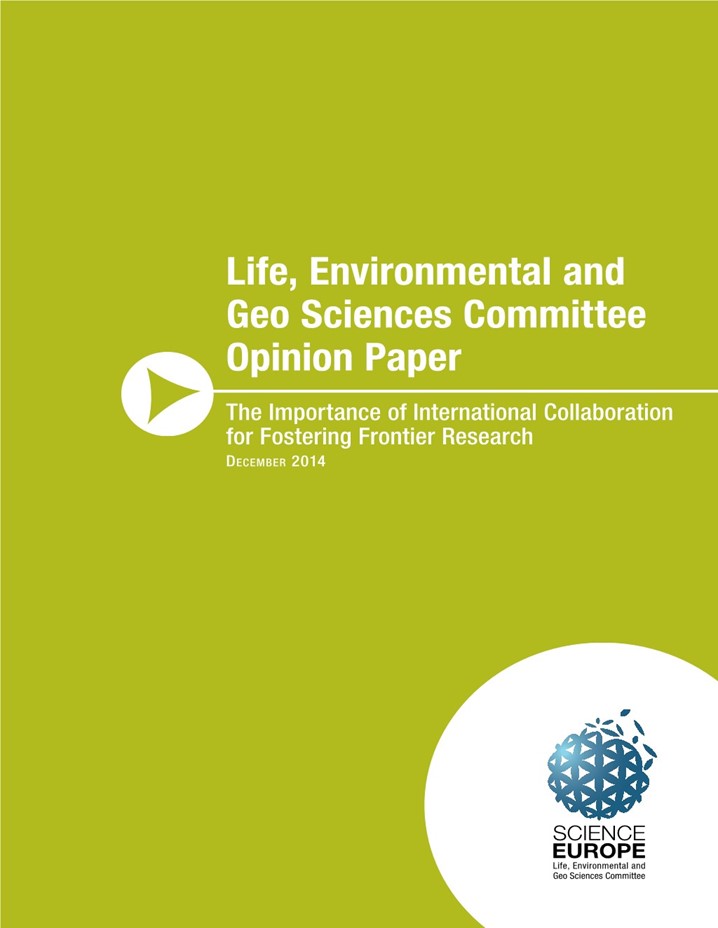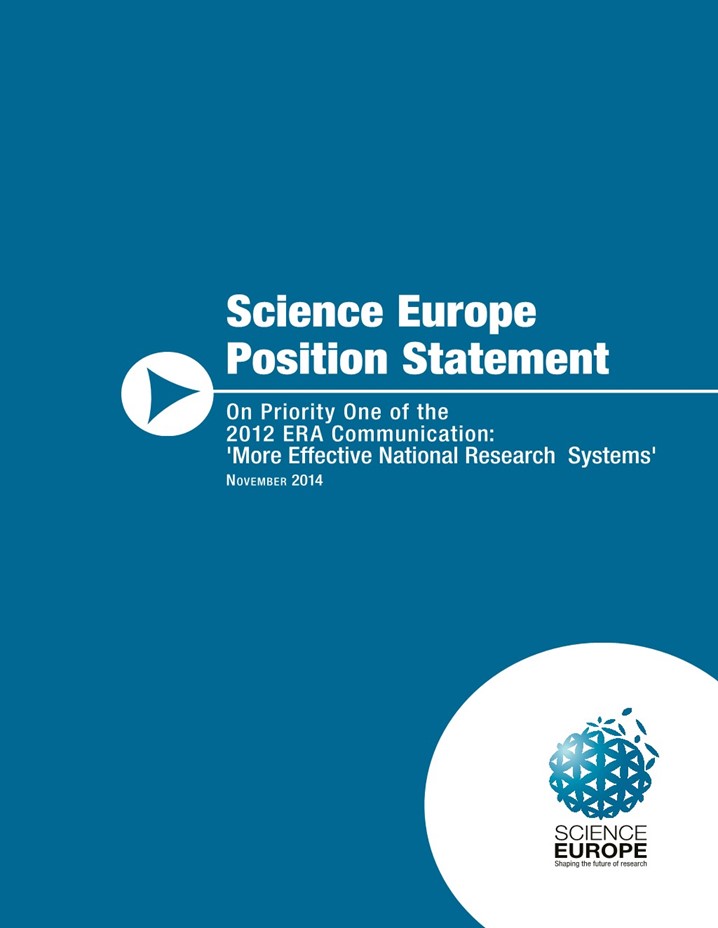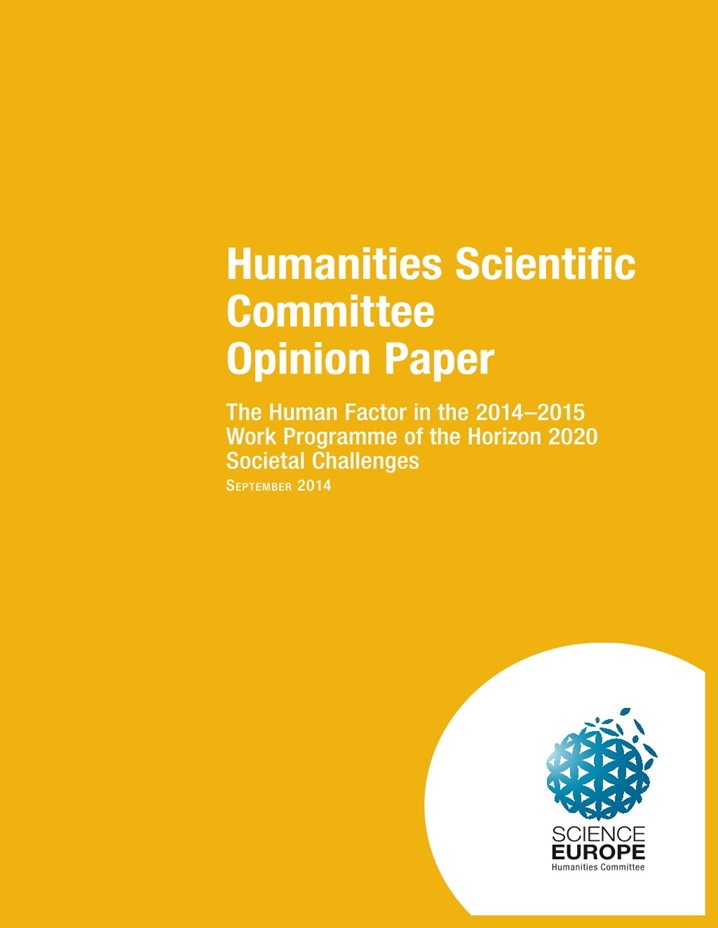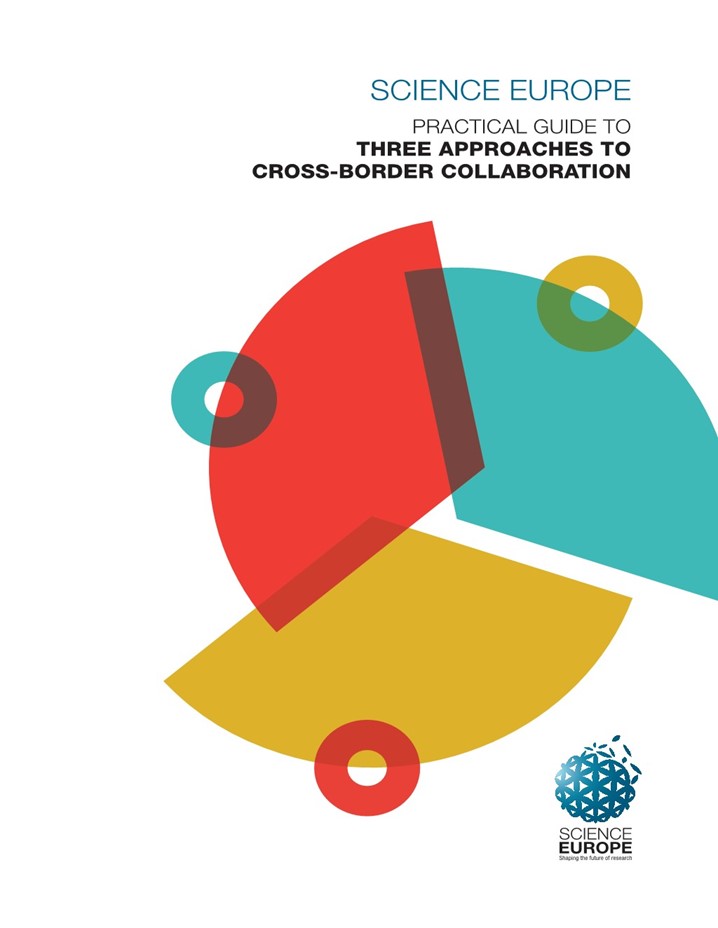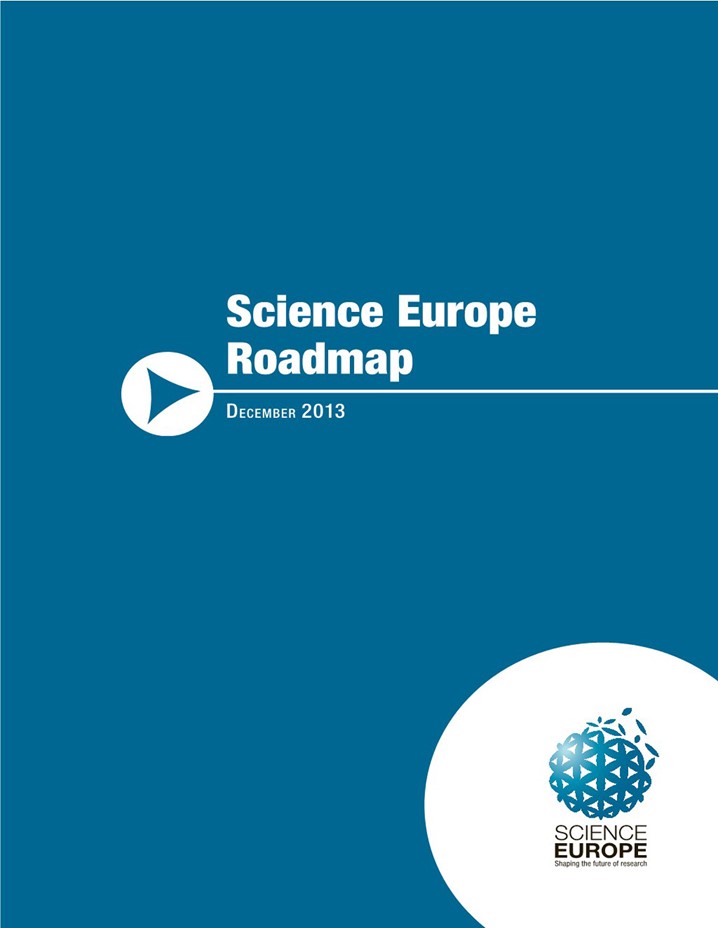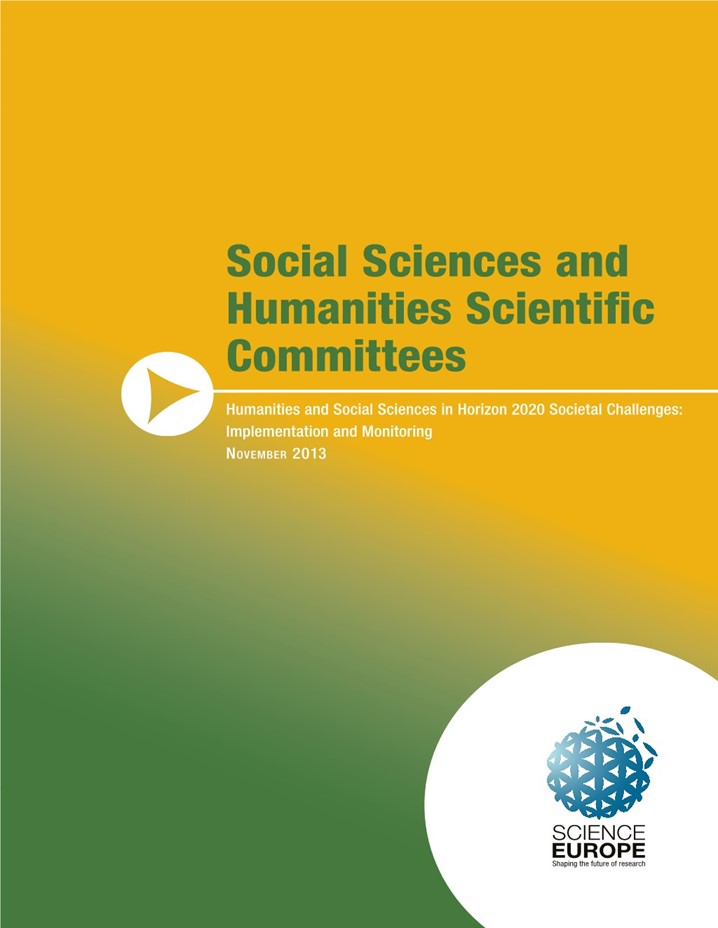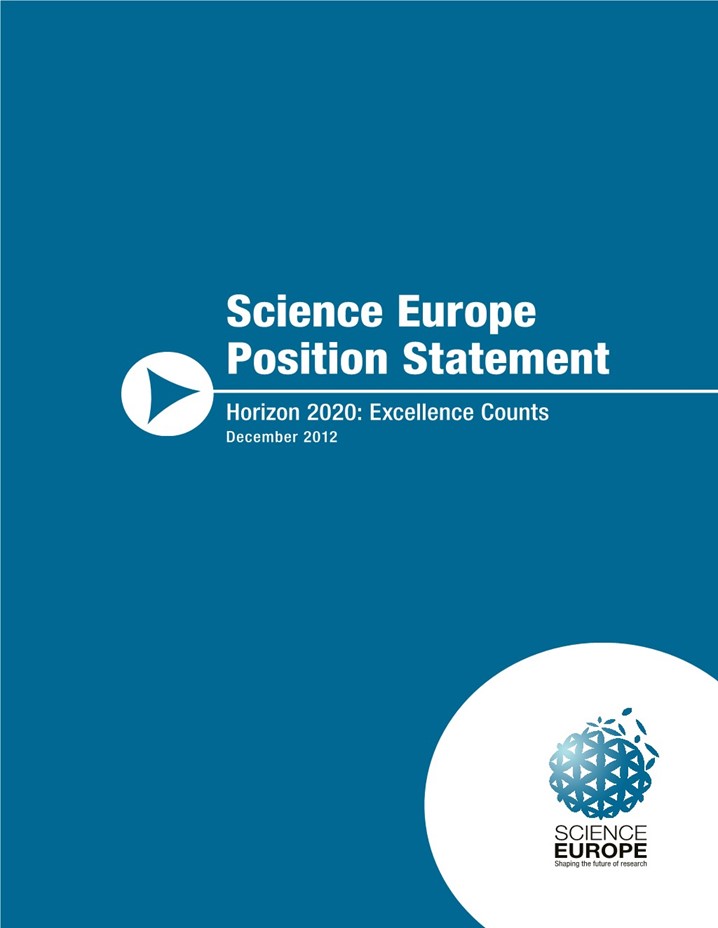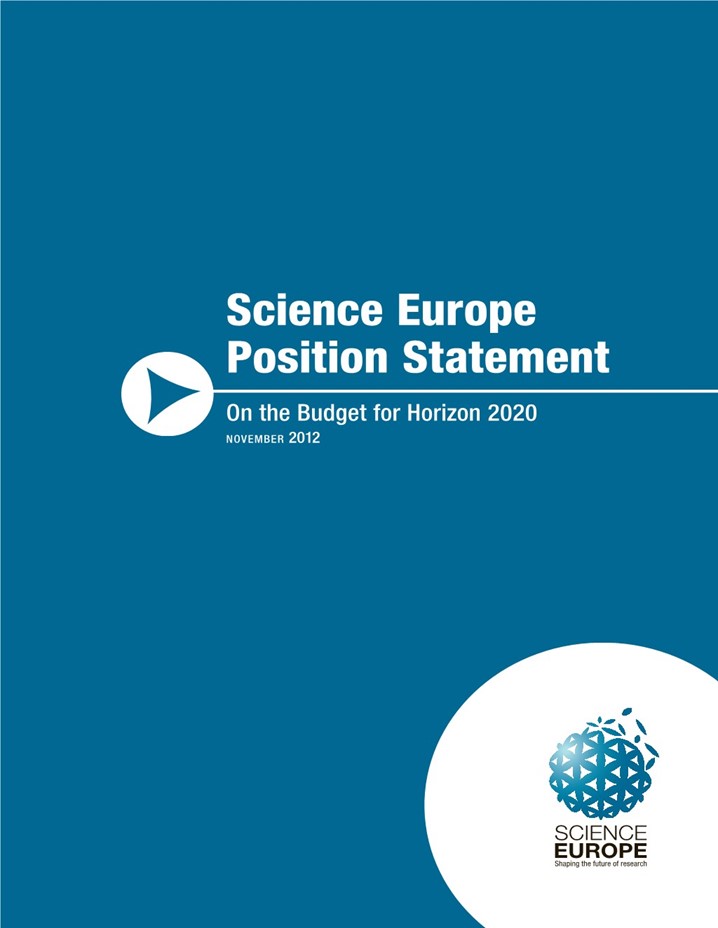Member-only content is available on this page. Please log in to view this content.

Our resources
Discover Science Europe’s comprehensive library of resources, including the most recent publications, briefings, and position statements.
123 resource(s) found
EU Copyright Reform Threatens Open Access and Open Science
This open letter issued by the international research community calls on Members of the European Parliament to halt the adoption of harmful provisions found in the current draft of the Directive on Copyright in the Digital Single Market, which could threaten Open Access and Open Science.
Cross-border Collaboration and Portfolio Management of Research Infrastructures
This report explores the challenges facing research funding and performing organisations to design and manage balanced Research Infrastructure (RI) portfolios and design effective cross-border collaborations when setting up and running joint RIs. Discussions with a broad range of stakeholders took place at a dedicated workshop co-hosted by Science Foundation Ireland and the Health Research Board.
Key Principles to Shape the Future Framework Programme
Science Europe shares eight key principles to shape the future Framework Programme. Examples of its European added value include the ERC’s role in fostering Europe-wide competition, the support of Research Infrastructures as a fundamental part of the European research system, and the support of collaborative research to solve societal challenges that cannot be addressed purely with national efforts.
Joint Statement on New Momentum for the European Research Area
CESAER, EUA, LERU, and Science Europe release this joint statement calling on European policy makers to provide new momentum for the European Research Area (ERA). The ERA is a treaty obligation of the European Union and today, more than ever, greater commitment to research is needed to tackle the challenges that Europe faces. By strengthening the ERA, and increasing funding for research, European policy makers would be giving Europe the resources it needs to embark on another 60 years of peace and prosperity.
Policy Brief on Research Infrastructures in EU Framework Programming
Research Infrastructures (RIs) are of utmost importance for Europe’s global competitiveness and this paper puts forward the case of how the focus on RIs in Horizon 2020 should be enhanced.
Policy Brief on FET Flagships
This briefing is a contribution to the evaluation and development of Future and Emerging Technologies (FET) Flagships under Horizon 2020. It highlights lessons learned about the added value and limitations of the current FET Flagships and provides recommendations for the development of the FET Flagship instrument.
Position Statement on the Framework Programme that Europe Needs
Horizon 2020 is a unique programme worldwide; it is widely appreciated and has an ambitious agenda. It can meet expectations as long as its nature as a programme capable of supporting excellent research is reinforced. Ahead of the interim evaluation of Horizon 2020, Science Europe shares the extensive experience of its Member Organisations, many of whom have decades of experience in setting up world-leading research programmes or are among the main beneficiaries of the Framework Programmes.
Allows for Mining but Doesn't Strike Gold: Science Europe Copyright Statement
The recent legislative proposal from the European Commission to reform EU copyright law addresses some needs, but not to the full extent required. Science Europe calls for research and data mining exceptions to ensure that copyright legislation is friendly to research and innovation.
Funding Research in Horizon 2020: Europe’s Most Valuable Strategic Resource
Science Europe expresses strong concern that the research funding budget be maximised in Horizon 2020 so that Europe can fully realise its target of becoming a smart, sustainable and inclusive economy. Funding for research and innovation in Europe is a critical strategic investment which is essential for Europe’s long-term growth and prosperity.
The Importance of Content Mining for Science
Text and data mining (TDM) is hugely important for science as it can facilitate better research and the free flow of knowledge across borders. This report urges policy-makers to update the legal framework in the context of the upcoming EU copyright reform in order to allow TDM for commercial and non-commercial means, and also to clarify the legal position surrounding it.
Radical Innovation: Humanities Research Crossing Knowledge Boundaries and Fostering Deep Change
This Opinion Paper shows how arts and humanities research is at the heart of innovation processes. In this paper the Science Europe Scientific Committee for the Humanities advocates the need for a wider and deeper understanding of the concept of innovation, in order to better prepare Europe to tackle global challenges. The Committee points out ways to achieve stronger European leadership through the promotion of radical innovation by highlighting the contribution of arts and humanities research.
Lead Agency Procedure Strategies
This report analyses the underlying preconditions and efficiency of Lead Agency Procedure (LAP), based on the evidence available from the many LAP partnerships among Science Europe’s members. It also contains policy recommendations for research organisations so that they gain a more accurate understanding of the Lead Agency principles and are made more able to judge on its scope and limitations.
Position Statement on the Role and Future of Joint Programming
This position statement highlights the added value of Joint Programming Initiatives (JPIs) as perceived by Science Europe Member Organisations, and makes two recommendations on the future of joint programming: one with regards to the evaluation of JPIs, and a second one concerning their governance. The aim is to stimulate other stakeholders – including the European Commission – to join in this discussion.
Opinion Paper on the Need for ‘Diamond Engagement’ around Open Access to High Quality Research Output
This publication by Science Europe’s Scientific Committee for the Social Sciences addresses two audiences: scientists, especially those who have been traditionally more resistant to the OA approach, and policy makers. In it, the Scientific Committee for Social Sciences proposes a ‘Diamond Engagement’ concept with the three key principles: partnership; standardisation and interoperability; and enabling structures.
Briefing Paper on Text and Data Mining and the Need for a Science-friendly EU Copyright Reform
Text and Data Mining (TDM) helps the analysis and extraction of new insights and knowledge from vast amount of digitally-available content. It offers great potential for research, but also for the economy and society as a whole since it enables innovation. This paper gives an overview of some of the legal hurdles faced by researchers using TDM practices, flags possible action lines for research organisations, and calls for a more science-friendly EU copyright law.
The Importance of International Collaboration for Fostering Frontier Research
In this paper produced by the Scientific Committee for the Life, Environmental and Geo Sciences, the Committee argues that in order to strengthen international collaborative research, the national research funding organisations should consider increasing their efforts to widen the participation of various European countries and global partners in multilateral schemes, whilst fostering interdisciplinarity and knowledge integration. Moreover, a bottom-up approach should be adopted in order to collect research proposals that contain novel ideas and solutions, captured directly from the research community and users, thus enabling open innovation.
Position Statement on Priority One of the 2012 ERA Communication: 'More Effective National Research Systems'
The 2012 Communication ‘A Reinforced European Research Area Partnership for Excellence and Growth’ laid out the current approach for realising a European Research Area (ERA). As this approach is now being reviewed by the European institutions, Science Europe puts forward its analysis of Priority One of the Communication, in order to start a fruitful dialogue with the European institutions on the future of ERA policy. This analysis provides a practical example as to why the current ERA Communication approach needs to be thoroughly reviewed if ERA policy is to have a real impact.
Opinion Paper on the Human Factor in the 2014–2015 Work Programme of the Horizon 2020 Societal Challenges
Since its inauguration in early 2013, the Science Europe Scientific Committee for the Humanities has strongly supported Horizon 2020’s third pillar, Societal Challenges. The Committee realises the importance of the issues addressed, and the urgent need to find solutions to these pressing questions. The Committee is therefore committed to making the Challenges-approach successful.
Practical Guide to Three Approaches to Cross-border Collaboration
In a globalised research ecosystem, collaboration is key. This collaboration also brings challenges linked to the diversity of scientific and legal environments. The aim of this practical guide is to provide better and more efficient means for research organisations to apply a set of optional models for cross-border collaboration and to help them achieve more successful and easier implementation.
Science Europe Roadmap
The Roadmap, approved by the Science Europe General Assembly in November 2013, is Science Europe’s action plan to contribute to the elements of a successful research system. It acts as a framework for voluntary collective activity, providing a long-term strategy for the association. The ‘Priority Action Areas’ are those in which Science Europe members believe that there is a potential to achieve tangible and substantive progress, and where they can add real value by working together.
Humanities and Social Sciences in Horizon 2020 Societal Challenges: Implementation and Monitoring
This Opinion Paper has been produced by Science Europe Scientific Committees for the Humanities and the Social Sciences to outline the main prerequisites for the successful integration of Social Sciences and Humanities throughout Horizon 2020’s Societal Challenges and across the entire research ‘ecology’. Overall, these elements should ensure a coherent interplay between the high-level objectives of Horizon 2020, the programme design, its implementation and evaluation.
Horizon 2020: Excellence Counts
Producing excellent science and research has historically been Europe’s key asset for sustainable growth and maintenance of a leading position in a highly competitive global economy. Horizon 2020, the European Framework for Research and Innovation from 2014 to 2020, complements national and cross-border efforts and should strengthen the impact of investments into science, research and innovation.
Horizon 2020 Budget: Time for Europe to Commit to a Knowledge-based Economy
As European leaders meet to decide on the budget of the EU for the next seven years, the 50 major Research Performing and Research Funding Organisations that constitute Science Europe would like to stress the importance of adequate funding for research and innovation at the European level. The Europe 2020 strategy is the primary EU-level plan to strengthen growth and competitiveness, by producing clear European added value through investment in education, research and innovation.

